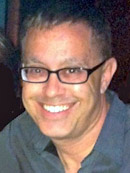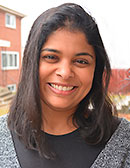
THE BRIDGE TO COLLEGE
MY ADMISSIONS SEASON – PART 1

It is always instructive to hear from students who have endured the burdens, felt the pains, and embraced the joys of The Admissions Season. Please read Liz’s story, replete with its ups and downs and weird moments. Maybe it will make your admissions efforts easier to shoulder.
Here is Part 1. Next month will bring Part 2.
“I’m not going to lie. My senior year was probably the most miserable year of my life. Although I expected it to be difficult, it was worse than anything I could have ever imagined.
“After spending the summer busy with a lab internship (aka, locking myself in an engineering building, sitting in front of a computer, and coding all day), I finished my list of extracurriculars pretty early on. Still, worried that my SAT score was good but not perfect, I debated taking it again, but Bob and Serena talked me down from that. I’m really glad because in hindsight, it would’ve been a huge waste of time and a significant distraction from what I had to do.
“My Personal Statement essay? That was a bit trickier. After about 50 conversations with friends to ideate storylines, I scrapped them all after talking to Bob just one time. I was originally fixated on the idea of a ‘snapshot’ essay, focusing on a singular moment and then zooming out to discuss why it might represent who I am as a person. In actuality, a chronological approach spanning the last several years of my life was way more fitting. I had to accept that this essay is not about jamming your story into a specific formula, but rather explaining what makes you, you? As Bob told me, ‘With a good essay, you should be able to remove the author’s name and still understand who wrote it.’
“Writing was definitely a struggle. In fact, having seen how I had written my school essays, Bob told me not to type it, but to dictate it for a more natural, conversational tone. The stress of writing something perfect, exacerbated by following an unfamiliar method, was overwhelming. I vaguely remember crying in bed while recording my first draft because I didn’t think it was going well, pausing the recording to finish crying, then going back and continuing.
“But in the end, finishing my Great Big Essay before school started was a huge relief, and I was glad to have that off my back. Plus, the essay was good, authentic to my ‘truth’ and much different from what the echo chambers and the Internet told me I had to create.
“Next came my supplemental essays, those pesky paragraphs that nobody discusses but which are as important as any Personal Statement. Because my first school would be MIT, the task didn’t feel so bad. MIT’s essay prompts are relatively straightforward, so I just wrote, Bob edited, and we found our way to the finish line.
“At the same time, Bob and friends were preparing me for my college interview … but MIT never asked me to interview. That was weird, scary and dispiriting. My friends were being interviewed; was I not good enough? Then I got official word: a deferral, meaning MIT had moved me into its Regular pool for consideration. Although Bob emphasized “You are not dead yet!”, I definitely felt defeated. Then MIT confessed what had happened: as it turns out, the interviewer assigned to me hadn’t done any of her assignments. So, MIT had to move me back because my file was not complete.
“I took that deferral pretty hard. Yes, there were tears involved.
“Truth? The two months before the January deadlines were a huge blur. I had a lot of reach schools on my list (I had not followed Bob’s ‘less is more’ advice), so November and December were a never-ending chain of essays, essays, interviews, essays and more essays. Some prompts I struggled with more (Harvard, Columbia), and some schools I struggled with less (Georgetown, Stanford, Princeton), but what came easily and what came harder was probably more a result of my mood than my effort.
“Thankfully – I guess – I did receive an acceptance letter from my sole safety school, Ohio State. It was kinda weird. I felt nothing. No happiness. No excitement. Just nothing. I live in Ohio, and my grades and SAT scores were way above OSU’s norms, so it didn’t feel like a win. It wasn’t what I was looking for, just a decent school that was only a two-hour drive from home. That acceptance did nothing to rehabilitate my mental health.
“Then came over two months of waiting….”
To be continued next monthRobert LeVine is the founder and CEO of University Consultants of America, an independent educational consultancy assisting students around the world with applications to colleges, universities and graduate schools. For more information, call University Consultants of America, Inc. at 1-800-465-5890 or visit www.universitycoa.com
FAMILY MATTERS
Communities and Milestones
By Anu Verma Panchal

A few months ago, I had the good fortune to stand by my parents’ side as they celebrated a significant milestone, their golden anniversary. One of my favorite parts of the event was that in addition to uncles, aunts and cousins, we had with us their closest friends, the extended “framily” that had helped my parents recreate a sense of home and family when they were thousands of miles away from the place of their birth.
Circa 1980, with a toddler and 6-year-old in tow, my parents moved to a little town in Zambia called Kabwe. They knew no one and nothing about this new country beyond my dad’s offer letter and one phone call with a relative who had once lived in Africa.
But on their very first evening, there was a knock at the door. It was a young Malayalee couple with two little boys our age. Hearing that a new family from Kerala had arrived, they had stopped by to welcome us. From that one introduction, my parents were immediately absorbed into a group of friends.
The same thing happened every time we moved towns. The news of our impending arrival reached before we did, and we were pulled into existing Malayalee social circles. Our weekends were spent at each other’s houses, uncles in safari suits swilling whiskey, aunties in sarees holding deafening conversations while we ran around and played. As the years passed, my parents grew into the veterans who welcomed new families and organized the elaborate cultural events that gave the community a sense of home away from home.
And all around town – and across the South Asian diaspora – others were doing the same thing. In Tamil, in Bangla, in Hindi, they created communities that served a familial function for each other. Community building seems to be in our genes. Or, as a friend once told me, “We’re like goats ... we can only travel in packs.”
During the college years and in my early 20s, plugging into the local desi community was nowhere close to being a priority; in fact, I reveled in the freedom from it. It was irritating, even, to see the insularity that I imagined permeated those associations. Why move to another country and only hang out with the same people? Why not at least try to assimilate?
It was only when I became a parent that I found myself searching, maybe even yearning, for some small level of connection. I wanted my daughters to learn Bharatanatyam like I had, wanted them to celebrate Hindu holidays and go to the temple occasionally. Does that mean that I want my communities to be restricted by ethnicity, language or religion? Certainly not. I am blessed with close “framily” from many backgrounds, and I enjoy Gasparilla as much as I do Onam and Navaratri.
Yet I am grateful for the generations who came before we did and established everything from the Tampa India Festival to the India Cultural Center so that we now have the option to dip a toe, an ankle or our whole selves in cultural life if we so desired.
A week before my older daughter was due to leave for college, I took her on one of our habitual visits to the Hindu temple here in Tampa. By a happy coincidence, the pujari on duty that day was the same one who had presided on the day that we had taken her on her first temple visit when she was a 6-month-old baby. “You’re the one who carried her to the front of the room when she was born, and now she’s starting college,” I told him. He beamed. “Look at that!” he marveled.
Look at that indeed. That kind of continuity doesn’t just happen. It’s the result of hard work from a lot of people who came before us, many of whom we’ll never even know. The roots they put down gave us the luxury to pick and choose how much we want to hold on to, because some variation of it has been preserved here for us.